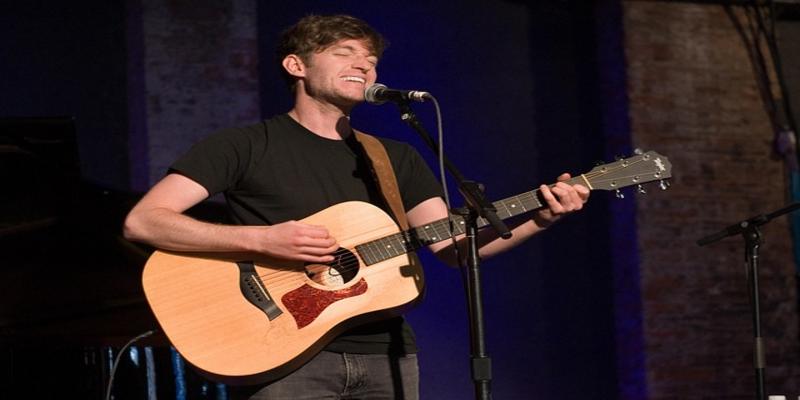Matt Chandler has somehow landed smack in the middle of the evangelical spotlight—and, oddly enough, he doesn’t really seem fazed by any of it. At The Village Church out in Flower Mound, Texas, Chandler hasn’t just built up a congregation. No, he’s found a way to turn his home base into a kind of digital watering hole, drawing in folks from far beyond Sunday morning regulars. Lots tune in online, some catch his TV appearances, and plenty just stumble across his story—the whole “skeptic-to-pastor” arc is catnip for anyone who’s quietly wondering if faith has a shot at being real.
Fifty years old, beard streaked with experience, Chandler has become a kind of brand name in Christian circles. The man’s survived a life-and-death medical scare most people can barely imagine, writes books that sell (more than a few), and runs one of the bigger church-planting organizations, Acts 29. What’s interesting is how he holds on to that old-guard evangelical substance while slipping easily into the digital hustle of the modern faith scene. He’s the bridge, in a way—part Bible-thumper, part pop-culture communicator.
Now, here’s the thing: faith leaders are under brighter lights than they’ve maybe ever been, and church seats don’t fill up like they used to. Even so, Chandler has this draw—call it charisma or just his willingness to be blunt, scars and all. His story bounces from doubt to drama to the kind of redemption you’d expect to read about, not watch unfold. Still, there’s no denying it: Chandler’s put down deep roots when it comes to what American Christianity looks (and sounds) like right now.
Where Chandler’s Ministry Got Its Fuel
Born June 20, 1974, up in Seattle, Chandler’s childhood played out across a map—his dad’s military career meant a blur of new addresses, schools, friends, the whole deal. Chandler’s open about it. “We moved a lot,” he’s said more than once. Maybe that’s why connecting with strangers doesn’t rattle him much, an asset for a guy always meeting new faces.
But—here’s where his story zigs—Chandler was pretty uninterested in church as a teenager. He’s always clear about that. Pushed back, asked questions, treated faith with a kind of cranky suspicion. It makes sense, then, that the about-face came as a surprise to even him. By high school, after years playing skeptic, he found himself saying yes (even if not loudly) to Christianity. That flip remains the backbone of his story. “My story is proof nobody’s too far gone for God,” he’ll say. Tidy, maybe, but it seems to land.
After taking the reins at Highland Village Baptist Church—now The Village Church—Chandler rolled out a new way of doing church that felt more open, more rooted in scripture and honest community. Pretty soon the church exploded with growth, and folks started taking notes. The approach? Less glitz, more substance, paired with streaming sermons and podcasts that have quietly nudged church tech across the board.
—
| Ministry Milestone | Year | Significance |
|---|---|---|
| Conversion Experience | High School | Foundation for ministry’s story |
| Church Leadership Begin | Early Career | Kickstarted transformation at Highland Village Baptist |
| Acts 29 Executive Director | 2000s | Headed up a major church-planting network |
| Cancer Diagnosis | November 2009 | Major personal and public faith test |
| Cancer-Free Declaration | September 2010 | Revitalized faith, boosted public cred |
—
Cancer, Faith, and the Stage Getting Bigger
It was November 2009 when everything shifted. Out of nowhere, Chandler suffered a seizure, and that’s roughly when things started unraveling: doctors found a malignant brain tumor, officially called an anaplastic oligodendroglioma. Not exactly the diagnosis you hope for. News traveled fast—his church found out, but so did the broader evangelical world. Suddenly, Chandler wasn’t just another pastor with a story; he was a real-time case study in suffering, faith, and (maybe) hope.
He never tried to fake calm for the crowd. Chandler let people in—updates on the surgery, moments of fear, updates on treatment. “I was scared but trusting,” he said, letting all that unpredictability into the open. That kind of transparency isn’t usually what you hear from the pulpit, yet it struck a chord (media included). For nearly a year, his story rippled out everywhere.
In September 2010, doctors announced he was cancer-free. Chandler gave credit to God, and, as he always notes, “the prayers of so many people.” That comeback moment sent his platform skyward, not just with The Village Church crowd but everywhere faith stories get shared. After that, his sermons felt different—heavier, maybe, but more urgent and less theoretical.
On Bookshelves and the Airwaves
It wasn’t long before Chandler took that lived-in perspective and dropped it right onto the printed page. His books dig into pain, recovery, faith, doubt—the sort of topics his audience seems to crave, especially his latest, “The Overcomers.” No surprise, it leans heavily on his own struggles. The theme is plain: hope in hard times actually means something.
He’s also found his stride with “The Overcomers with Matt Chandler,” a podcast that’s as much therapy session as conversation. Guests open up, Chandler opens up, and somehow it makes a half-hour fly by. Even people with only a foot in church circles check it out out of curiosity.
Despite his knack for modern media, Chandler hasn’t drifted from his roots. Pastors, professors, everyone with an opinion on theology—they tend to find him trustworthy, if a bit intense. “He makes the tough stuff simple, but never watered down,” as one fan commented. Scroll Instagram and you’ll spot him wherever Christian thought leaders gather; debate is just part of the job.
Why the Wider Culture Keeps Watching
Try talking about modern evangelicalism without Chandler’s name popping up—it’s nearly impossible. He’s escaped the “just a local pastor” mold and stepped, sometimes awkwardly, into national conversations. Chandler doesn’t flinch from tough topics, either. Doubt, tragedy, suffering—if it’s on someone’s mind, it’ll end up in one of his talks eventually.
Funny thing is, his approach—being messier, rawer, sometimes a bit too honest—has made space for other faith leaders to do the same. The Village Church keeps growing, but it’s not some mega-production. The appeal, it seems, is how Chandler makes substance the main event, not the background music. Cynics and longtime churchgoers alike have noticed.
The Chandler family is hardly a footnote here. Lauren, his wife, and their three kids show up in his stories, his Instagram, and the occasional conference Q&A. “We want people to see us as real,” Lauren’s said before. Apparently, plenty of families latch onto that, looking for examples that feel less airbrushed.
Cultivating Growth with Acts 29
Chandler’s role as executive director for Acts 29 puts him at the center of the church-planting conversation. Hundreds of new churches have sprung up with Chandler’s fingerprints on their DNA: solid theology, fidelity to basics, but a willingness to try new things.
What’s made Acts 29 tough to ignore is its balancing act—holding onto strong convictions while never sounding like a sequel to last century’s approach. Ministry leaders everywhere turn to Acts 29 as a kind of playbook for reaching skeptical, tech-savvy generations (and apparently their case studies are getting some traction in seminary syllabi).
So, not only is Chandler shaping one congregation, he’s rippling out across whole denominations, and, depending on the week, even sparking conversation with leaders outside the evangelical bubble. The guy’s influence isn’t shrinking.
What’s New Lately
If you blinked, you probably missed something. Chandler’s schedule for 2024 is full—podcast, speaking events, popping up in places both predictable and weird. His podcast keeps landing surprising guests, and let’s just be honest: the Instagram follower count acts like it has a life of its own.
Meanwhile, The Village Church keeps trying new outreach, blending traditional and digital, testing what works and tweaking what doesn’t. Chandler doesn’t seem content to let things coast, and it’s catching on. Even folks skeptical of fast-changing churches are taking a closer look.
He’s picked up a reputation for hitting cultural talking points just as they break while always circling back to something in scripture. There aren’t many faith figures with that knack these days, and that’s part of why his audience isn’t going anywhere soon.
Final Take
Matt Chandler’s journey—from that hard-headed teenager to widely watched preacher—is proof enough that redemption stories don’t fall out of style. There’s a raw, slightly unpolished vibe to how he talks about pain and healing, but also a steady drumbeat of hope. He’s found a way to blend solid theology and messiness, and, maybe for the first time in a while, that sort of mix is exactly what lands with believers and skeptics.
As he sticks with his roles at The Village Church and Acts 29, the ripple effect keeps going. Books, podcasts, sermons—everywhere you look, there’s Chandler, finding new ground. It’s not about making faith flashy, just real enough to be noticed.
And as the landscape of American Christianity keeps shifting and lurching and, honestly, sometimes unraveling, people like Chandler show what it looks like to be both direct and grounded. Whether you’re deep in the pews or just passing through, Chandler’s unlikely path from rebel to respected leader proves these stories still have the power to grab attention—and keep it, year after year.










